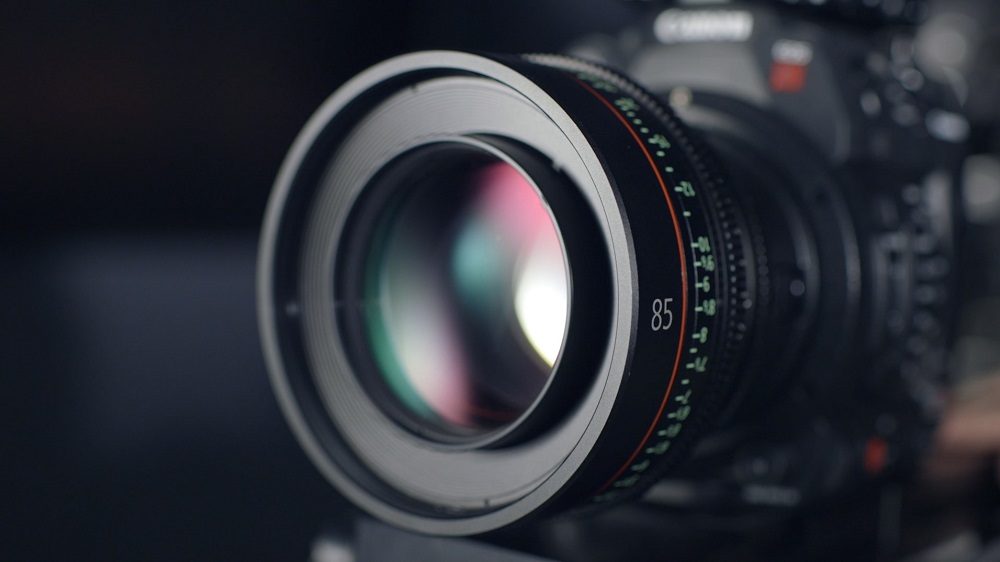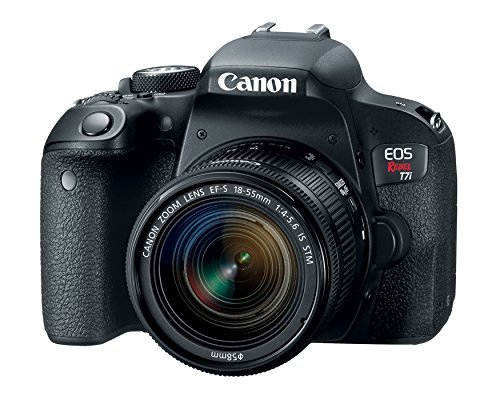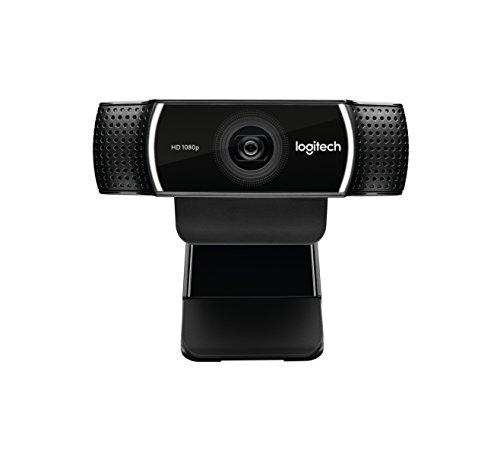While it’s ultimately your content that’s going to make or break your YouTube channel, finding the perfect camera for what you’re doing can definitely make it better.
However, so many people find all the information out there and get overwhelmed with their options.
The purpose of this article is to narrow down the seemingly limitless options and highlight a collection of the best cameras to get you started on YouTube.
Table of Contents
Recommended Budget Cameras
For the purposes of this article, I’ve compiled a list of the best cameras for YouTube novices for under $1000.
Whichever camera you choose, the options below will help you make the best possible YouTube video content.
1. Canon Rebel T7i: Tried and True
- 24.2 Megapixel CMOS (APS-C) sensor.
- Built-in Wi-Fi*, NFC** and Bluetooth***.
- High-Speed continuous shooting at up to 6.0 fps. Weight Approx. 18.77 oz. / 532g (including battery pack...
I’ve heard of so many YouTube content creators who began their journey with a Canon T3i; rightfully so, it’s a spectacular camera.
However, the T3i is a little outdated, and it’s younger sibling, the T7i, is much more capable. Being only a couple of years old, the Canon T7i has all of the capabilities for a good YouTube camera and more.
Whether you’re looking to go vlogging around your city, travel to another continent, or maybe just do a tutorial right in your living room, this camera fits the bill. It’s smaller than the average DSLR, meaning it’s also very light, coming in at only a little over a pound.
Most importantly, you’re not giving up any features for the extra compact body. It comes with a fully rotating flip-out LCD display, a must-have for anyone who doesn’t have the budget to seat someone behind the lens.
This LCD display is also touch sensitive, meaning you can change most of the key settings with just a tap on the screen.
Along the line of important settings, the T7i has some remarkable features. For one, it has a hot shoe mount for a shotgun mic, which at this price point is an under-appreciated feature. Most DSLRs come with poor built-in mics so buying an external one is a wise option.
Second, it comes with an app for controlling it remotely. Another feature that sets the T7i apart as a one-stop-shop camera is the Dual Pixel Auto Focus, a feature that was traditionally reserved for Canon’s higher-end cameras, but is now available in the mid-range T7i.
This is significant because it allows you to keep any subject in focus, by simply selecting it on the touch-LCD display. This is the icing on the cake to a perfect film-anywhere camera because between Dual Pixel Auto Focus, a fully rotational LCD display, and a good mic mount, you can film completely on your own.
Now of course, no camera comes without its faults and the T7i is no different. To begin, it doesn’t do too well with low light as the APS-C sensor doesn’t pick up much in dark environments. Another thing to take note of is the fact that it doesn’t shoot 4K.
However, it’s does film standard 1080p, and in the world of YouTube, 4K isn’t really used anyway.
To conclude, the T7i is a remarkable camera with many useful features for its $800 price tag.
Key Features:
- 24.2MP APS-C CMOS sensor
- DIGIC 7 image processor
- LP-E17 battery
- Video capture 1080p, 1080i
- Wireless communication: WiFi
Pros
- Built in flash
- Fits in hand nicely
- Great Dual Pixel autofocus
- Clear LCD screen
Cons
- Auto ISO minimum shutter speed preset
- Battery life slightly less than similar models
- No second SD card slot
2. Canon 77D: For those with a larger budget
- Hdr movie & time-lapse movie
- Built-in Wi-Fi*, NFC** and Bluetooth***
- Built-in Wi-Fi, NFC and Bluetooth
Another great option for your YouTube content creation is the Canon 77D. As the newer and slightly less-expensive version of the popular Canon EOS 80D, the 77D has many features and additions the 80D doesn’t bring to the table and a more attractive price point.
Similar to the T7i, this camera is good for almost anything. Light and versatile, you can take it when you travel, mount it in your car, or throw it on a tripod at home.
The 77D could be known as the halfway point between the more commonly known T7i and the more expensive EOS 80D. Some components the 77D has to offer are a 24.2 megapixel CMOS APS-C sensor, a hot shoe mount, and a fully articulating LCD display. In addition, we have the dual pixel autofocus, and an AF On button featured on the camera body. Meaning, you can focus in almost 0.03 seconds.
You may be thinking to yourself, what makes the 77D different from the T7i? The answer is, actually, quite a bit. For one, it has a dual knob control, allowing for you to adjust more details without returning to the menu.
Secondly, it has an display on the top of the camera which can be helpful for getting the settings just right.
And let’s not forget, while it’s not the smallest and lightest camera in Canon’s line-up, it’s also not the largest or heaviest, meaning it rests in a sweet spot of size to features.
This allows for a quick on-the-go camera, if you’d like, but if you add a nice lens you can get picture quality that rivals its older and more expensive brother, the 80D.
While the above features set the 77D apart, the most useful differentiator from the T7i is the auto video stabilization. As wonderful as this camera’s lack of weight is, it’s tough to keep stable, and that’s where the auto video stabilization comes in.
Only cropping your video the slightest bit, the video stability is a great feature to top off this exceptional Canon DSLR.
Key Features:
- Optical Zoom 1.00x
- 45-point cross-type autofocus system
- Vari-angle Touch Screen
- Guided Display
- Weight 19.05 oz
- 24.2 MP CMOS (APS-C) Sensor
Pros
- Lightweight
- Easy to use
- Premium features for less the cost
Cons
- Similar to Canon Rebel T7i
3. Panasonic Lumix G7: If you want to go mirrorless
- Photo and video capability 16 Megapixel micro Four Thirds sensor confidently captures sharp images with a...
- 4K capture 4K Ultra HD video recording (3840 x 2160) Plus 4K PHOTO pause and save frame that extracts...
- Intuitive controls easily control aperture and shutter speed settings with the front and rear dials while...
While the T7i and the 77D are both relatively light cameras by DSLR standards, the most common complaint about a DSLR is its weight. The modern photography world has fought this battle with the invention of the mirrorless camera.
A mirrorless camera removes the physical mirror in favor of a snapshot-style sensor and digital viewfinder while still keeping the image quality of a DSLR with a large CMOS or CCD sensor.
One of the top mirrorless cameras is the Panasonic Lumix G7 and it’s a great option for YouTube content creation.
The Lumix G7 isn’t nearly as user friendly as the DSLRs discussed above, but once you get the hang of it, there’s great potential.
Sporting a fully articulating touch LCD display, a large, 17.3mm x 13.0mm sensor and better-than-average battery life, the Lumix G7 is a great option for long days of filming. Because it’s a Mirrorless Camera, it’s also lighter than the T7i or the 77D.
Another feature of the Lumix G7 is Wi-Fi compatibility, which allows you to send photos and videos straight to your computer or mobile device.
Depending on your workflow, this could be an efficient solution that avoids continually removing the SD card, which is located on the bottom of the camera by the battery.
While this isn’t uncommon, depending on your mount and rig, removing the SD card could be very inconvenient.
The Lumix G7 also shoots in 4K, which is a welcome feature at this price point, especially considering the DSLRs featured above are limited to 1080p. These features, combined with its light frame and good battery life, the G7 sets itself apart from other cameras.
Two minor faults, aside from the unfortunate the SD card slot location, is that it under-performs in low-light and has much slower autofocus as compared with its DSLR competitors.
That said, the Panasonic LUMIX G7 is actually a fantastic mirrorless camera that has succeeded in giving us a more compact frame without skimping on the most important features that are often associated with professional DSLR cameras.
Key Features:
- Improved low light performance
- Swivel LCD monitor
- 4K Ultra HD video
- High-resolution viewfinder
- 16 Megapixel micro Four Thirds sensor
Pros
- Rugged
- Intelligent auto modes
- Programmable function buttons
Cons
- Images not as sharp as the GX1
- Does not have APS-C SLR
4. GoPro HERO7: When portability takes priority
While DSLRs offer uncompromising photo image quality, and mirrorless cameras offer ultra-high-resolution video, it goes without saying that neither would be appropriate for diving through waterfalls.
If your YouTube content involves action sports, or activities where portability is of the utmost importance, an action camera may be you best option.
The clear market leader in action cameras in is GoPro. It’s no surprise they are ahead of the game, GoPro revolutionized action cameras since it introduced the GoPro HERO3 in 2012. Their latest model, the HERO7 Black, continues this tradition.
If an action camera meets your filming needs, the HERO7 is the way to go. It shoots in 4K, which is as amazing as it sounds for a camera you can fit in the palm of your hand. It’s fully waterproof and can withstand about sub 30ft pressure without needing a case.
In addition, there are hundreds of accessories from a variety of manufacturers to help you capture the perfect shot for whatever adventure you may be embarking on.
The HERO7 also sports full video stabilization as well as time lapse and some truly amazing slow-motion capabilities.
Once you’ve captured your crisp and colorful video you can easily sync it straight to your computer or mobile device with the GoPro app or software.
GoPro also has a variety of apps and software designed to make post production and editing a breeze.
My final thoughts would be that for $400, it’s hard to beat the HERO7’s features. With slow-mo, 4K, waterproofing, Wi-Fi, and video stabilization, the GoPro HERO7 should be on everyone’s list of cameras for YouTube content creation.
Key Features:
- Waterproof
- Touchscreen HERO7
- 4K HD Video
- 12MP Photos
- Streaming Stabilizer
Pros
- 4K Video
- Waterproof
- Able to livestream
- Lots of mounting options
Cons
- Gets hot when recording in 4K
- Battery life
5. The Logitech C922: Super cost-effective
- Sold as 1 Each.
- Stream and record vibrant HD 1080p video at 30 fps or 720p at 60 fps.
- Customizable background replacement* powered by Personify--integrate live images while broadcasting and...
If you are just starting out in the world of YouTube content, it may not make sense to invest $1,000 in a DSLR, or even $400 in a GoPro. Another option is to purchase a high-quality webcam, which tethers you to a computer, but still offers decent image quality.
While there are many options in the world of webcams, the Logitech C922X stands out from the crowd as the best bang for your buck in the market.
Coming in at about a $100 (but can frequently be had for $50 on sale), the C922 is a little on the pricey side for a webcam. However, the extra money doesn’t go to waste. The webcam markets itself as the perfect solution for streamers, and includes software to sync directly with your YouTube or Twitch account.
This makes uploading or live streaming much less of a hassle. The camera itself features a full glass lens, and captures full 1080p at 30 frames per second. It also shoots in 720p at 60 frames per second with virtually no lag while streaming.
In addition, the camera picks up vivid colors and has a 78-degree field of view. Allowing you to accommodate up to two players in one shot.
Often when a live stream appears grainy, it’s due to a low light level in the room, and not necessarily the quality of the camera. To fix this, the C922X has a poor-light correction feature, that allows for brighter and more high definition images, even in low light.
The C922X also comes with an app that allows you to tweak numerous settings to your personal preference on the fly.
In terms of sound, the C922X features a decent pair omnidirectional microphones that sit on either side of the camera and pick up sound clearly.
To conclude, while it’s a little more expensive for a webcam, the C922X provides a healthy suite of features that set it apart from its competitors.
Key Features:
- Video capture 1080p
- Connectivity Wi-Fi, USB
- Image capture speed 60 fps
- Weight 0.16 Kilograms
Pros
- Strong audio
- Great price
- H.264 streaming
Cons
- Hard to stream in low light
6. The Smartphone: The camera you already own
Sometimes the one camera that’s most often overlooked is the one in your pocket. Today, smartphones have huge potential for YouTube content creators due to significant improvements in mobile optics and rich application marketplaces.
While DSLRs and mirrorless cameras will always beat smartphones for image quality, you’d be shocked at the capabilities of your iPhone, Samsung Galaxy or Google Pixel device.
The modern smart phone camera has advanced so much that sometimes it’s hard to tell if it was taken by an iPhone or a DSLR.
Let’s take a look at some of the best smartphones for YouTube content creation and ways to take your everyday videos to the next level.
iPhone
Virtually every smartphone today runs on either iOS or Android. Of the two, let’s look at iOS and the iPhone first.
With the release of the iPhone 6, Apple introduced a major breakthrough in smartphone photography. Apple continued to add quality cameras in all their phones following.
The most recent iPhone, the XS, features dual 12MP wide-angle and telephoto cameras and stunning 4K video, in addition to its previous slow-motion capabilities.
Overall, for something you tend use daily, the iPhone provides some amazing video when you don’t have a dedicated DSLR or Mirrorless camera handy.
Android
Many Android phones have also made the leap into exceptional mobile photography. Take the new Samsung Galaxy S10, for example. Like the iPhone XS, the S10 also has 4K video, and slow-motion. The S10 also features “super slo-mo” that shoots an astonishing 960 frames per second.
Related Article: 10 Best Camcorders For YouTube
Summary
While they ultimately cannot compete with high-end DSLRs, many modern smartphones have amazing capabilities and should be considered as you begin creating YouTube content.
I hope this has given you some insight as to some of the best cameras for starting YouTube.









